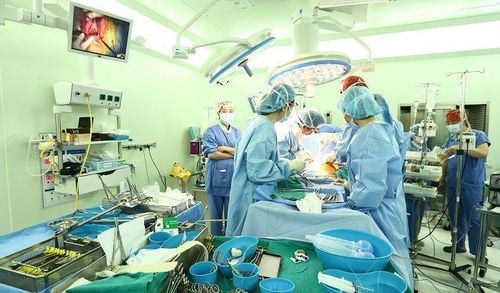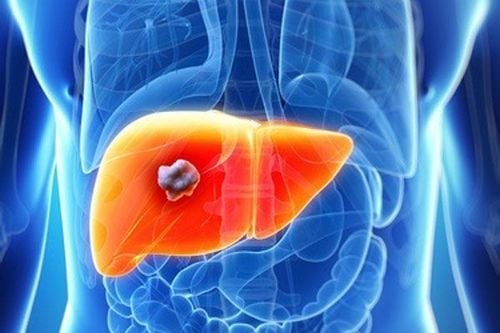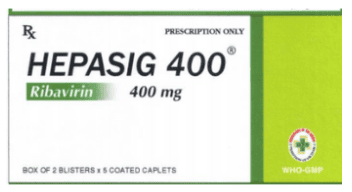This is an automatically translated article.
The article was professionally consulted by Specialist Doctor I Vo Thi Thuy Trang - Gastroenterologist, Department of Medical Examination & Internal Medicine - Vinmec Danang International Hospital.Compensated cirrhosis and decompensated cirrhosis are two clinical manifestations of cirrhosis. Compensated cirrhosis is also known as the early stage of cirrhosis, and decompensated cirrhosis is the advanced stage of cirrhosis. At each stage, the patient will have different signs and symptoms.
If left untreated, cirrhosis can cause serious health complications, such as ascites, leg swelling, gastrointestinal bleeding, kidney failure, infection, and even cancer. liver.
1. What is compensated cirrhosis?
Compensated cirrhosis is the early stage of cirrhosis and patients often do not show any symptoms. During this stage, the liver can still carry out its tasks because they still have enough healthy cells to compensate for the damaged liver cells along with the scar tissue formed by cirrhosis. Compensated cirrhosis often lasts for many years with very few signs to recognize the disease.Compensated cirrhosis is usually diagnosed through examination or blood tests ordered by your doctor. The diagnosis plays an extremely important role, which can help patients detect cirrhosis early for timely treatment and prevent the disease from getting worse. You can even prevent or slow liver damage.
Cirrhosis can develop due to a liver problem or other disease. Treatment needs to start early from the very cause of cirrhosis before symptoms get worse. You may feel tired, lose your appetite, and lose weight uncontrollably. After a period of time, the functions of the liver will become less and less effective, even unable to perform its normal tasks.

Alcohol abuse: Alcohol is a leading contributor to liver health. When you use alcohol for a long time, they can cause liver damage, causing liver function to decline rapidly and early cirrhosis. Nonalcoholic fatty liver disease: If your cirrhosis is caused by the disease, you can improve your liver health by losing weight and keeping your blood sugar under control. Hepatitis B or C: This is the main cause of cirrhosis. Patients may have to take medication to treat the disease, as well as control its symptoms.
2. How to prevent and control compensated cirrhosis?
The following are methods to help you effectively prevent and control compensated cirrhosis, including:Do not drink alcohol or use other stimulants Use medications as directed by your doctor Regular check-up Regularly follow your doctor's schedule. Get plenty of protein. Avoid infections, as cirrhosis makes it harder for the body to fight them. Get vaccinated against flu, pneumonia, hepatitis A and B See more Consult your doctor if you are using over-the-counter medicines such as aspirin, acetaminophen or ibuprofen.

3. What is decompensated cirrhosis?
Decompensated cirrhosis is the later stage of compensated cirrhosis. At this point, your liver already has too much damage, scar tissue and obvious complications develop.Doctors can diagnose decompensated cirrhosis through the following signs or symptoms of the patient:
Jaundice: This condition occurs when the liver is unable to perform its function of removing bilirubin, a degradation products of porphyrins, which can cause jaundice or yellowing of the eyes. Ascites: Abdominal bloating caused by excess fluid build-up in your abdomen. Bleeding from varicose veins: Varicose veins occur mainly in enlarged veins. Characteristic signs of varicose veins include stools that are black, tarry, or bloody. This is an emergency and needs to be treated immediately. Hepatic encephalopathy (HE): A condition in which toxins build up inside the brain, causing people to feel confused, extremely tired, and have difficulty performing daily activities such as writing, or driving. car.

Treatments often focus primarily on preventing the complications of cirrhosis from becoming more serious. Patients can have tests to monitor, or use prescription medications from a doctor to control symptoms of the disease, thereby helping to improve quality of life and handle daily activities with ease. than.
4. Measures to help prevent and control decompensated cirrhosis
To effectively prevent and manage the symptoms of decompensated cirrhosis (advanced cirrhosis), you can follow the steps below:Limit salt intake if you have ascites Apply a diet a high-protein, high-calorie diet to strengthen the liver Those with ascites can take diuretics prescribed by a doctor. Stay hydrated even if you have ascites to avoid complications. dehydration Flu, pneumonia, hepatitis A and B vaccinations Do not use pain relievers such as ibuprofen, especially those with ascites. Give up alcohol Maintain a reasonable weight Use fresh, cooked foods to avoid infection Periodic health check-up to monitor the progress of the disease If treatment is not effective, you can do liver transplant surgery (replacement of liver from a healthy organ donor).

Please dial HOTLINE for more information or register for an appointment HERE. Download MyVinmec app to make appointments faster and to manage your bookings easily.
Reference source: webmd.com













